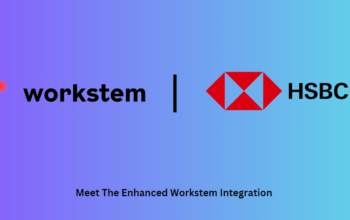After more than a year since the virus was detected, the COVID-19 pandemic continues to disrupt many aspects of life. In Hong Kong, government officials have mobilized initiatives to test citizens in certain parts of the nation again due to fears of a fifth wave of infections that might occur soon.
With COVID-19 cases increasing, it’s hard to tell when life will truly go back to pre-pandemic times. Because of this effect, businesses are continuously looking for new and innovative ways to survive and thrive during these times of uncertainty. However, throughout 2020, one lesson that businesses have learned is to digitize their operations. Digitizing processes is a great way for companies to streamline their work, lift some burden off of their employees, and improve their business amidst a global crisis.
According to Deloitte, companies that fared better during the pandemic had two similar attributes: technology preparedness and improved cybersecurity including identity and access management. On another hand, companies that struggled to pivot and shift to a remote work environment had bandwidth constraints prior to the pandemic and inflexible legacy systems and processes that could not keep up with user demand.
With this in mind, it’s clear that traditional businesses are at risk of being left behind or, worse, closing down if they don’t start their digital transformation.
But this begs the question: how exactly can businesses digitize their operations to prepare for worst case scenarios, such as stricter lockdowns and new waves of infections?
Identify methods and processes that can and should be reinvented
First and foremost, it’s imperative that businesses determine which of their internal operations should be digitized. Data shows that 29% of companies deploy technology without a clear understanding of whether it will create value, rather than targeting their technology deployments to address specific pain points.
It’s important early on in the process that businesses identify what they should address with technology so that they can save costs and effort and immediately resolve long-standing problems typically hindered by traditional processes. Studies show that digitization—when done right and at scale—yields a 15-30% cut in working capital and an uptick in incremental revenue growth of up to 6% through enhanced productivity. Traditional businesses would surely benefit significantly from integrating technologies into their system.
Reorganize HR operations
Next in the list is reorganizing HR programs and initiatives, especially when it comes to handling employees. It goes without saying that companies won’t be able to operate properly if their employees don’t have organized systems to follow. HR programs help employees—from the company executives to the rank-and-file employees—work in harmony.
With that said, HR leaders must then look into their own operations and initiatives to see which ones that can streamline or accelerate with the help of technology. Through digitization, HR leaders can reduce human errors and simplify internal transactions, instead of manually fixing problems and letting employees approach various point persons just to have someone resolve their concerns.
It pays to invest in technology, especially if they promise improved workflows, reduced costs, and satisfied employees.
Team up with a tech provider
Business partnerships have long been instrumental among companies that want to accelerate their growth and further expand their customer base. In the age of the pandemic, business partnerships have been more important than ever. For companies that continue to employ traditional methods and have little to no knowledge how to procure and operate technology, the easiest route they can take is partnering with a credible tech partner.
Workstem, for instance, is an HR tech provider focused on helping small- and medium-sized enterprises streamline their HR tasks through an integrated and flexible platform. Through its Partnership Program, Workstem provides its partners―particularly recruitment firms, accounting firms, payroll outsourcing agencies, and business advisory service providers―with the right technology and support system to help them better cater to their clients’ needs and improve their operations.
Moreover, Workstem supports companies through special discount rates with a high profit margin, co-branding and marketing promotions, business referrals, and free platform education and training―all in an effort to help them grow and survive whatever crisis comes their way.
In this day and age, it’s not enough to just survive a global crisis with traditional processes. Digitization is the key to weathering and even thriving during a pandemic and the consequences that it has and will cause. It’s all just a matter of taking the initiative and finally walking towards innovation and growth.
Read More:
5 Benefits of Having a Tech Partner in HR
Payroll Done Remotely: Mistakes HR Should Avoid






![[418 Guide] Ordinance 418 And Continuous Contract](https://www.workstem.com/wp-content/uploads/2023/08/Untitled-design-min-350x220.png)
